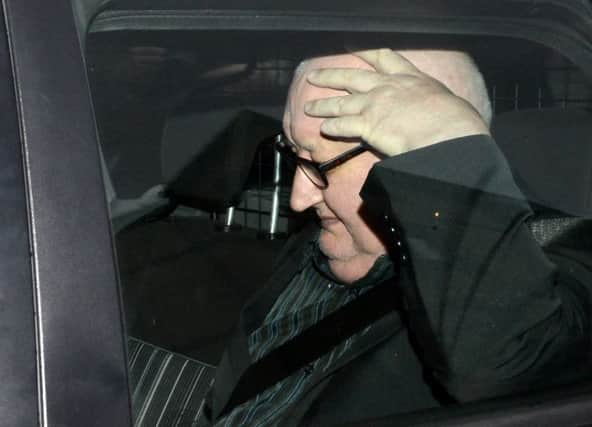Taxi drivers face revealing medical records


The requirement was agreed by Moray Council last year – before the tragic Glasgow bin lorry crash – as part of a review of taxi licensing conditions, but it has not yet been progressed.
Members of the local authority’s licensing committee will this week be asked to decide whether to move forward with implementing the requirement for applicants to provide a medical report on their fitness to drive or to reverse its decision.
Advertisement
Hide AdAdvertisement
Hide AdThe move comes as a senior consultant physician called for family doctors to pass on information about patients whose driving may be considered a safety issue because of a medical condition.
The council committee will be told that although the taxi trade initially backed medical reports on the grounds of public safety, the latest consultation suggested they believed it was unduly onerous and unnecessary.
Council officers have said the cost of commissioning reports would fall on the local authority initially, although it could be recouped through an increase in licensing fees.
A spokesman said: “It is estimated that the cost of reports would be at least £100 to £125 each and approximately 200 would be required per annum. This is a total estimated cost of £20,000 to £25,000.”
Under the existing system applicants are required to disclose any medical conditions which might affect their ability to drive and are asked specifically about heart problems and diabetes. If issues are identified, a report is sought and paid for by the licensing authority.
The report to Wednesday’s committee meeting states: “Under self-disclosure, very few reports are required. That implies that for a large percentage of applications the report would be of no added value unless prospective drivers could be said to be concealing medical conditions. There is no evidence to confirm this and no ‘hidden’ medical conditions have been found.”
Professor Andrew Collier, based at University Hospital Ayr, said the case of Harry Clarke, the driver who blacked out at the wheel of his lorry in Glasgow last Christmas – killing six people – highlighted the need for family doctors to inform patients’ medical condition the DVLA licensing authority if they believed they were a potential danger.
Advertisement
Hide AdAdvertisement
Hide AdA fatal accident inquiry into the tragedy, which continues this week, has heard how Mr Clarke complained repeatedly of vertigo, dizziness, stress, headaches and depression.
It was also told that GPs can ask patients to self-report to the DVLA about their condition and, if they refuse, are within their rights to go to them with their worries.
Prof Collier said: “It’s quite clear that GPs have a duty of care to notify the DVLA if they have concerns that a patient could pose a risk because of a medical condition.
“I think many doctors are unaware of this and it needs to be highlighted.”
Erin McQuade, 18, and her grandparents, Jack Sweeney, 68, and Lorraine Sweeney, 69, from Dumbarton, died from multiple injuries after being hit by the refuse lorry.
Stephanie Tait, 29, and Jacqueline Morton, 51, both from Glasgow, and Gillian Ewing, 52, from Edinburgh, were also killed in the incident.
A fatal accident inquiry has heard that the Crown Office had decided not to proceed with criminal proceedings against Clarke, who had been advised not to drive after dizziness in 2003 when working as an oil tanker driver.
A spokesman said that since Mr Clarke was unconscious at the time he was not in control of his actions.